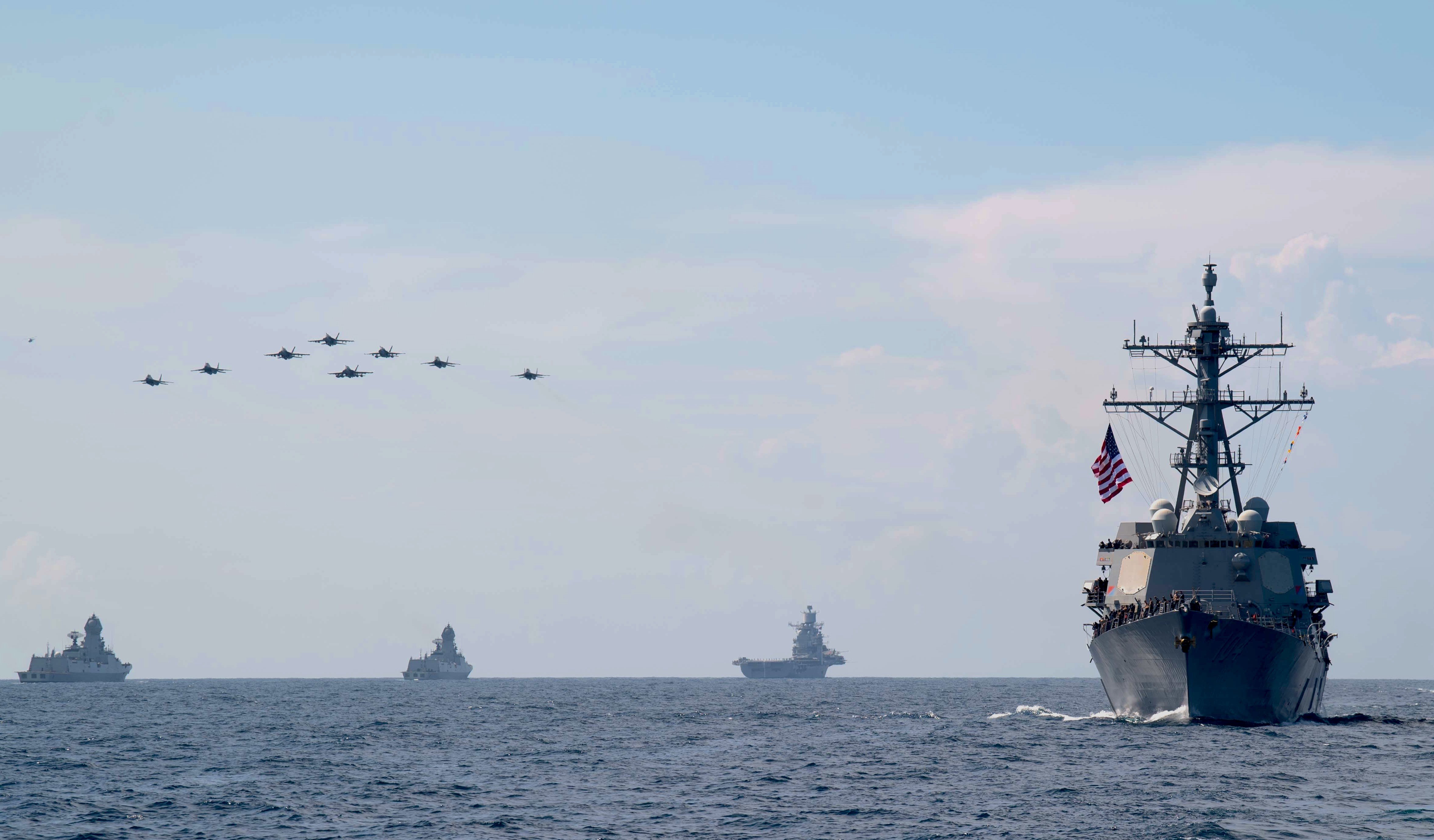
As the United States seeks to counter China in the Indo-Pacific, it should look to partner with countries in the region like India, according to a long-time House Armed Services Committee lawmaker.
Rep. Rob Wittman (R-Va.), who serves as the ranking member of the HASC seapower and projection forces subcommittee, on Tuesday described India as a likely regional partner.
“I think there’s great opportunity with the nation of India to continue to grow that relationship. I’ve been there to visit several times with their military leaders and they are very interested because of what China’s doing with the one Belt one road – which essentially surrounds India,” Wittman told the American Society of Naval Engineers’ virtual conference.
The Virginia congressman was referring to China’s Belt and Road Initiative focused on infrastructure.
“India feels threatened with that, as they should – looks to the United States to partner even more,” Wittman added. “The Indian government is recapitalizing their fleet of ships, building 45 new ships, which is a pretty big task. We need to do more of the work with them.”
Wittman said partnerships in the Indo-Pacific will be crucial because the United States cannot afford to counter China by itself because the current environment includes several threats, unlike the Cold War era.
“Those Asian nations though are trying to butter their bread on both sides. So they’re growing relationships with China. We need to be up to the task to make sure that we grow our relationships both strategically and economically with nations in the region,” he said. “And because we’re not going to be able to do it by ourselves. We will not have the ability just with economic resources that we have here at home to do all of this by ourselves.”
Wittman argued that the Pentagon, industry and Congress must work to guarantee that the U.S. gets more “capability and capacity” out of each dollar than China or Russia get out of their respective currencies.
“Because we are not going to have unlimited resources going forward. So we have to get the most out of our resources and we have to get more out of our resources than the Chinese do. And we have to do things differently,” Wittman said.
“It can’t all be about defensive systems. It can’t be all about offensive systems. It has to be about how do we do things thoughtfully to impose risks upon the Chinese, to impose uncertainty upon the Chinese, to make sure that they have to expend more of their dollars to counter that uncertainty, which helps us in being able to maintain and I hope being able to outpace them.”
One avenue for changing its approach to capability is in unmanned platforms, Wittman said.
“We have to look at systems and say, ‘it doesn’t make sense to create a million-dollar system to take out a $50,000 threat,'” he added.
But Wittman argued that it’s important the Navy take the correct approach as it pursues new unmanned ships, platforms officials say would be critical in the vast waters of the Indo-Pacific.
The Trump administration focused on the threat from China and unveiled a National Defense Strategy that marked a shift in policy from concentrating on counter-terrorism operations in the Middle East to preparing for conflict with China and Russia.
While in its early days, the Biden administration appears to be adopting a similar approach to China. White House Press Secretary Jen Psaki recently emphasized “strategic patience” in regard to China and said the administration hopes to include input from Democrat and Republican lawmakers and U.S. allies in any strategy it pursues.
“I think our approach to China remains what it has been since – for the last months, if not longer. We’re in a serious competition with China. Strategic competition with China is a defining feature of the 21st century,” Psaki told reporters in a Monday press briefing.
“China is engaged in conduct that – it hurts American workers, blunts our technological edge, and threatens our alliances and our influence in international organizations,” she continued. “What we’ve seen over the last few years is that China is growing more authoritarian at home and more assertive abroad. And Beijing is now challenging our security, prosperity, and values in significant ways that require a new U.S. approach.”
Antony Blinken, whom the Senate confirmed on Tuesday to serve as Biden’s secretary of state, told lawmakers he would maintain the United States’ commitment to guaranteeing that Taiwan has its own defense capability.
“[L]et me just say that I also believe that President Trump was right in taking a tougher approach to China,” Blinken told the Senate Foreign Relations Committee last week. “I disagreed very much with the way that he went about it in a number of areas, but the basic principle was the right one, and I think that’s actually helpful to our foreign policy.”





